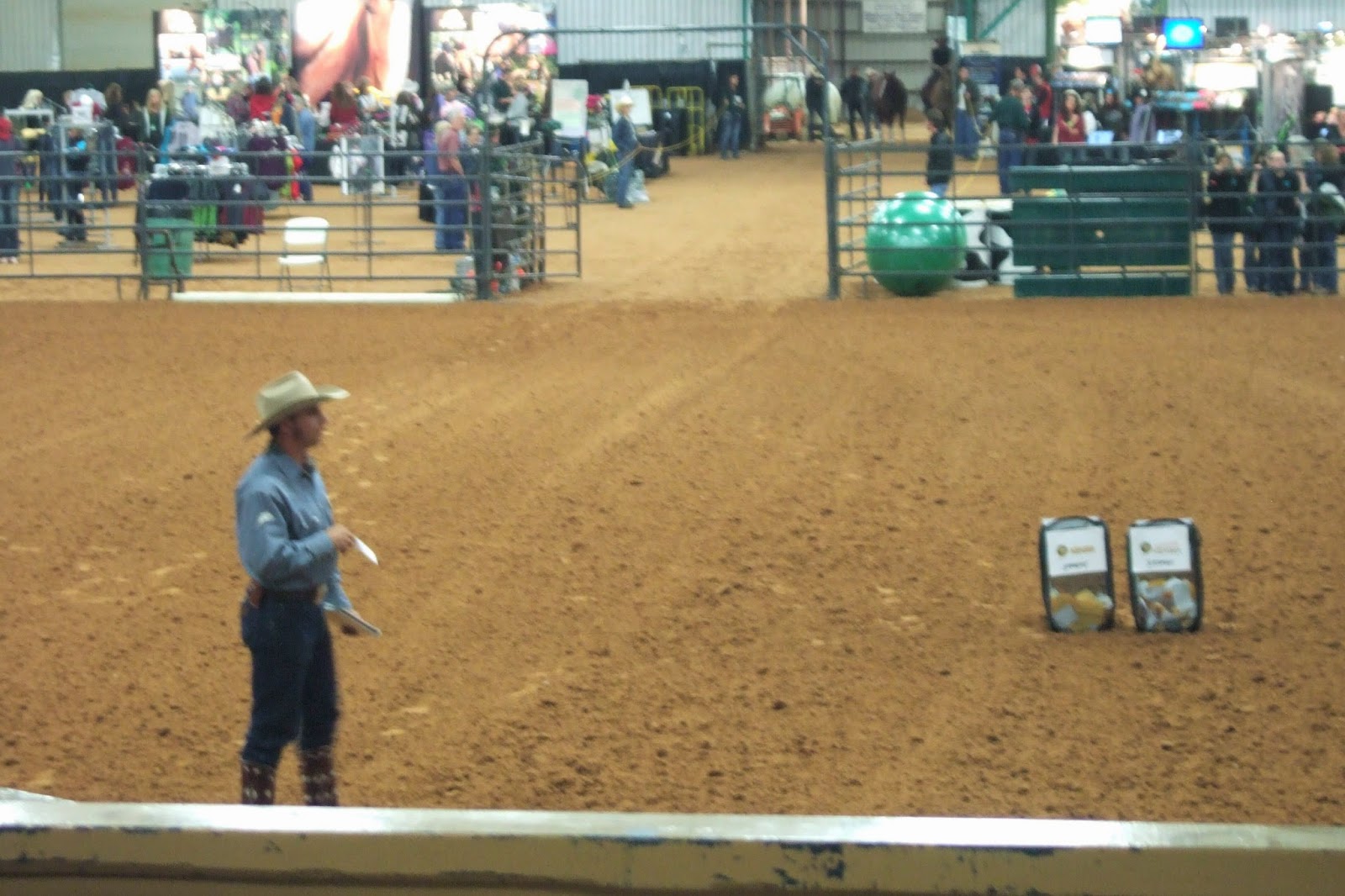Saturday started out with one of the sessions that I've seen so many times in all my years attending the Parelli tour stops, but this time it was different. All the times before, Pat has taken a local horse, talked to its owner, and then worked with the horse for up to 2 hours until its most major issues had improved. This time, Pat gave instruction and helped the owner learn along with his horse.
The horse was a lovely Arab/Morgan who also had some interesting problems: not letting people ride her, kicking whenever her hind legs were messed with, bracing and so on. By the end of the 2 hour session, the young man was able to touch the horse's back legs, have her understand basic instructions, and he knew a lot more about how to slow down and give the horse time to process and think.
It was different than I had seen before and I really enjoyed it.
Takeaways from session 1:
- The little things are more important than we think they are.
- Patience is important. Give the horse time to process.
I didn't get any good pictures from the second session, but it was about the different "personalities" of horses and a few strategies on how to work with each one. Linda brought out four different horses and showed all of this in action.
The fearful, fractious horse that can't stand still:
- Telling them 'no' only makes them worse.
- Alternate encouraging them to run and leaving them alone to relax.
- They have to try, we can't force them to make a change.
The naughty, playful, dominant horse that can't stand still:
- Control your energy, go from strong to soft, keep them interested.
- Have a plan, a focus. Be provocative. Be faster with decisions.
- They will quickly assess how weak you are and take advantage.
- Don't give them time to be naughty. Always something new.
The quiet fearful horse that has a hard time moving (can't move):
- Don't push them hard, stay very soft in energy.
- Work very slowly on the same thing for a long time.
- They are emotionally sensitive and its easy to offend them.
- When asking for a little more effort, be satisfied with a little bit at a time.
The dominant reluctant horse who simply won't move:
- Move slowly but be very particular in your questions.
- Be intense. Ask slowly and then "bite".
- Ask for slower than they want to go. Blow their mind.
- Reward before they get bored or frustrated.
Pat came out again after the second session and talked about horsemanship in general again, and specifically about the type of support you surround yourself with. The people you need to be around ought to put the relationship first (with horses and other people), ought to have or be putting down a great foundation in everything they do, and constantly be focused on never ending self improvement.
 |
| Christi Rains, an instructor, showing off with her lovely horse. |
 |
| Giveaways! This was fun too. ;) |






Very interesting! When working with less experienced horses, my trainer often talks about giving the horse time to process what's going on as well.
ReplyDeleteYes! Some horses just come up with naughty things to do if you give them time, but most can use that time productively :)
Delete